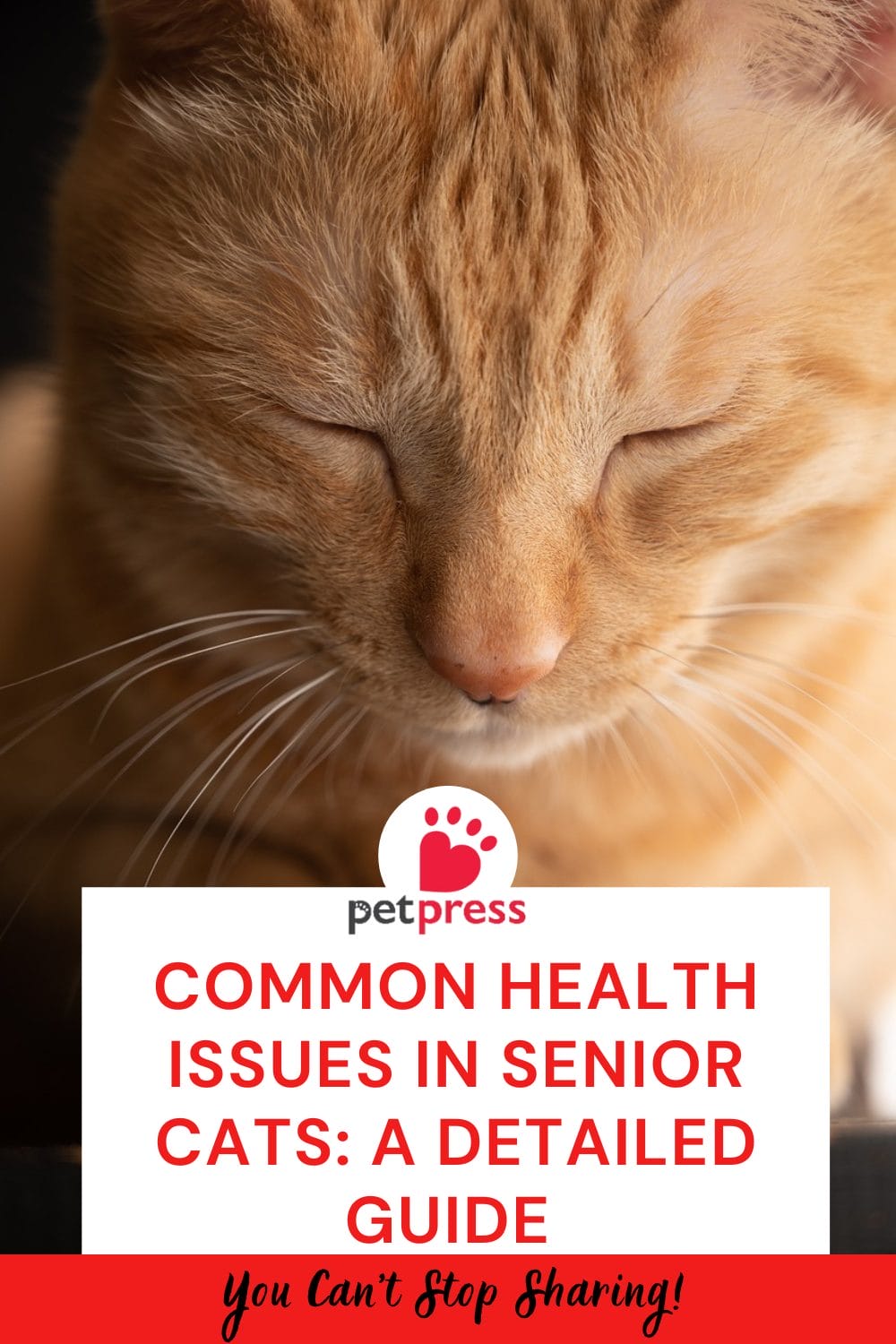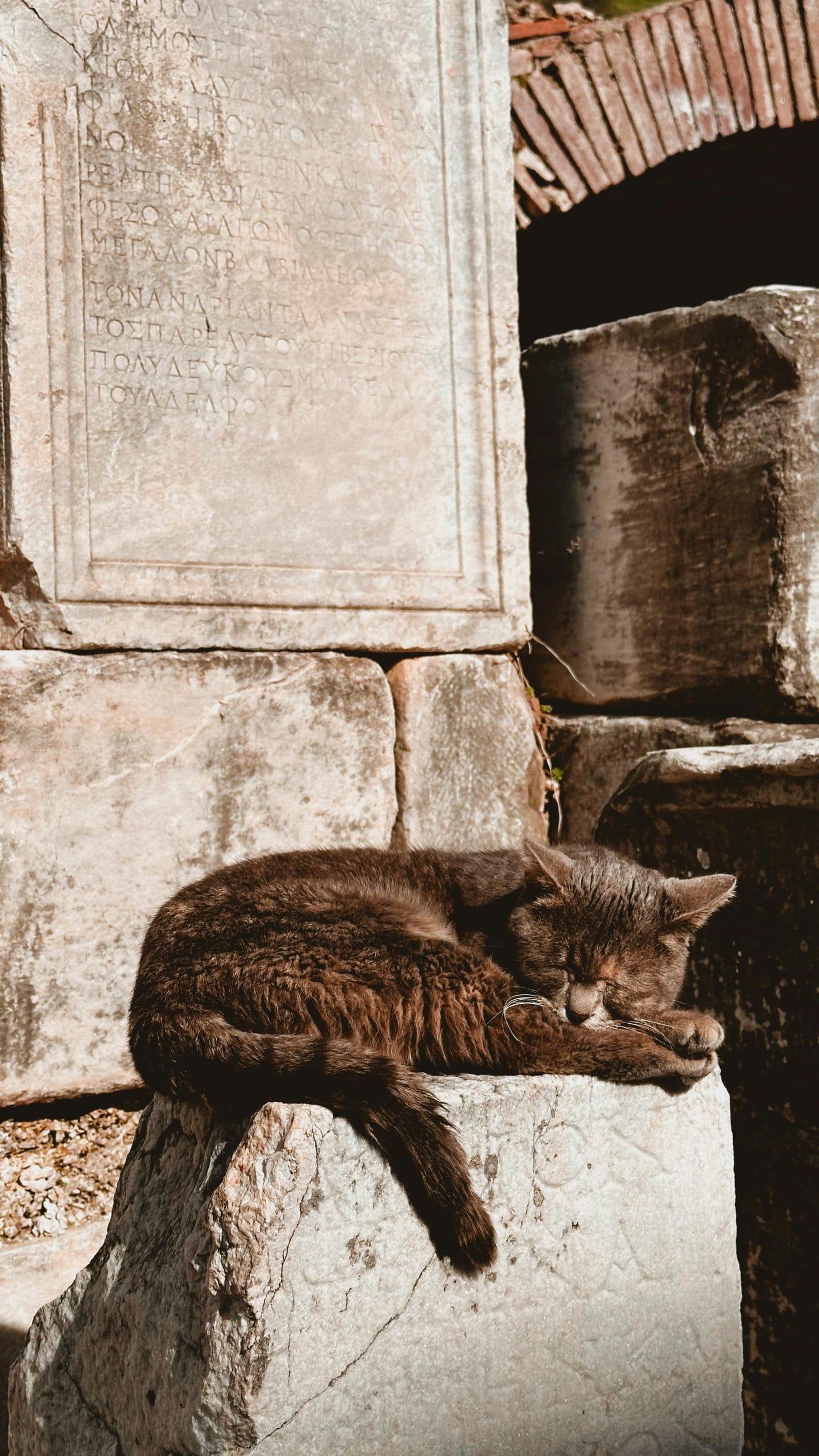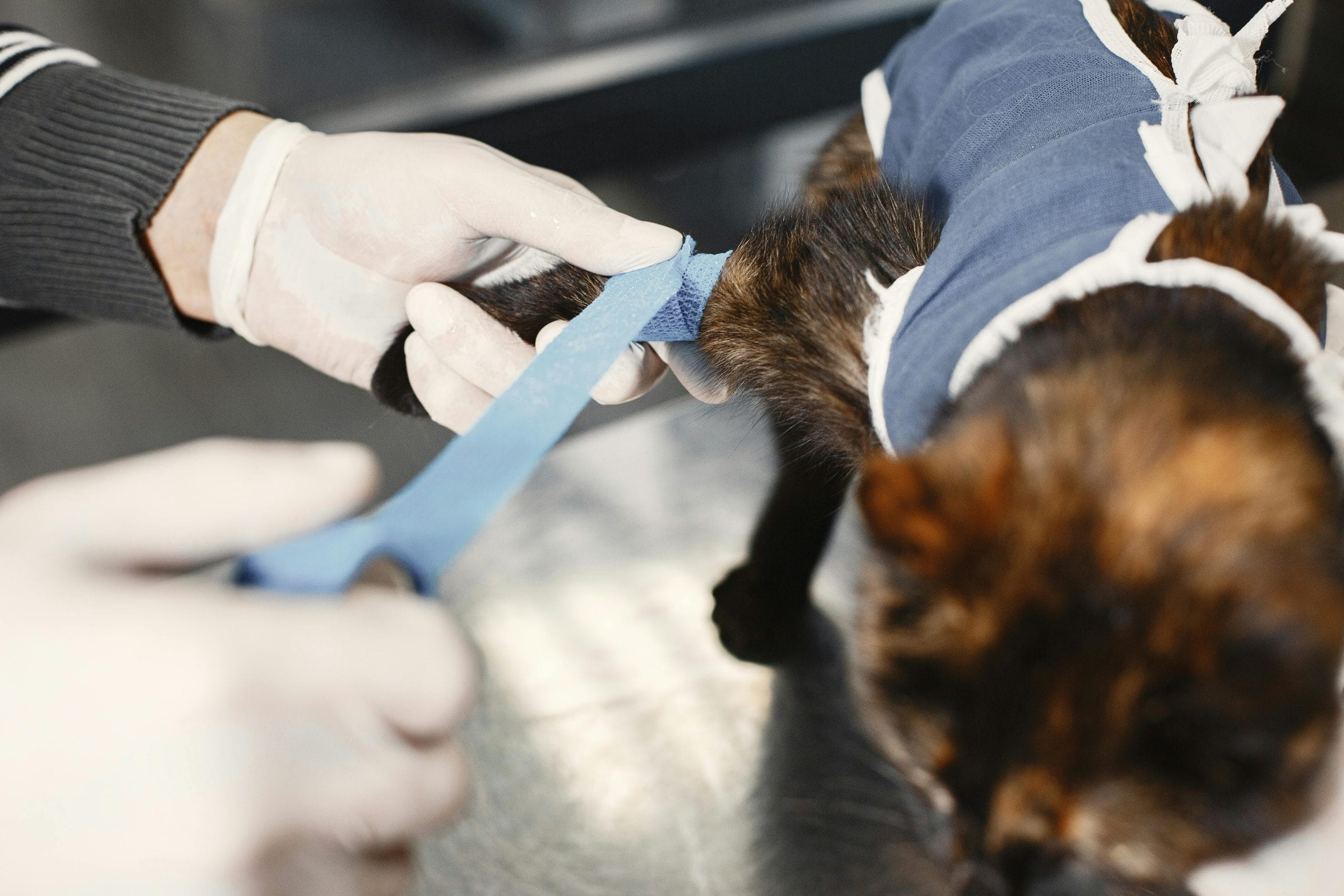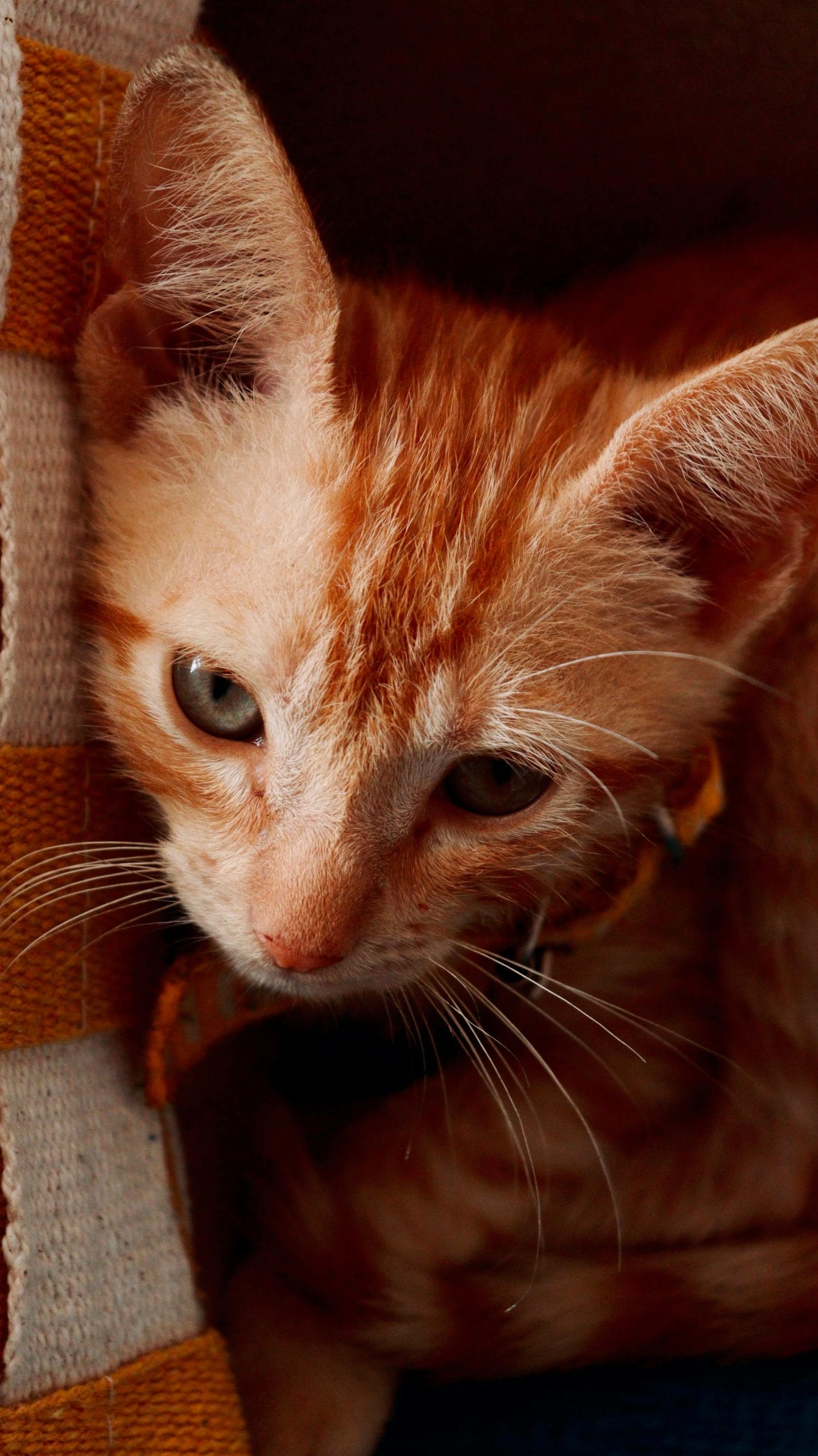
Common Health Issues In Senior Cats is common nowadays. As our beloved feline companions age, they become more susceptible to a variety of health issues.
Understanding these common ailments and knowing how to address them is crucial for ensuring the well-being and longevity of senior cats.
In this comprehensive guide, we’ll explore the typical health concerns that affect ageing felines, offer valuable prevention strategies, provide nutritional advice, and address frequently asked questions to empower cat owners in providing optimal care.
History
Cats are living longer than ever thanks to advances in veterinary care and nutrition.
With this extended lifespan comes an increased likelihood of encountering age-related health problems.
In the past, many of these issues might have gone undiagnosed or untreated, leading to a decrease in the quality of life for senior cats.
However, with a better understanding of feline health and improved veterinary care, we can now address these issues more effectively, allowing our furry friends to enjoy their golden years to the fullest.
Types of Health Issues in Senior Cats:

- Arthritis: Joint inflammation and pain are common in older cats, often resulting from wear and tear over the years.
- Kidney Disease: Reduced kidney function is prevalent in senior cats and can lead to dehydration, weight loss, and other complications.
- Dental Problems: Dental issues such as periodontal disease and tooth decay become more common as cats age, impacting their overall health and well-being.
- Hyperthyroidism: An overactive thyroid gland is a common condition in senior cats, causing symptoms like weight loss, increased appetite, and restlessness.
- Diabetes: Older cats are at higher risk of developing diabetes, a metabolic disorder that requires careful management of diet and insulin levels.
- Cancer: While cats of any age can develop cancer, the risk increases with age, necessitating regular veterinary check-ups for early detection.
- Cognitive Dysfunction Syndrome: Similar to dementia in humans, cognitive dysfunction syndrome can affect older cats’ memory, learning, and behavior.
Tips to Prevent Common Health Issues in Senior Cats :
- Regular Veterinary Check-ups: Schedule routine check-ups with your veterinarian to monitor your cat’s health and catch any issues early.
- Maintain a Healthy Weight: Keep your senior cat at a healthy weight to reduce the risk of obesity-related health problems.
- Provide Mental Stimulation: Engage your cat with toys, puzzles, and interactive play to keep their mind active and prevent cognitive decline.
- Monitor Diet and Nutrition: Feed your senior cat a balanced diet tailored to their age and health needs, avoiding excessive treats and table scraps.
- Promote Dental Health: Brush your cat’s teeth regularly and provide dental treats or toys to help prevent periodontal disease.
Nutritional Tips to Prevent Common Health Issues in Senior Cats

High-Quality Protein
Older cats may require more protein to maintain muscle mass and overall health.
Look for nutritious cat foods with high-quality protein sources, such as chicken, turkey, or fish.
Protein supports muscle strength and immune function, helping older cats stay active and healthy.
Moderate Fat Content
While older cats may be less active than their younger counterparts, they still need some fat in their diet for energy and to support skin and coat health.
Opt for cat foods with moderate fat content to prevent obesity while ensuring your senior cat gets the essential nutrients they need.
Increased Fiber
Senior cats may experience digestive issues such as constipation or hairballs.
Adding fibre to their diet can help promote healthy digestion and regular bowel movements.
Look for cat foods with natural sources of fibre, such as beet pulp or pumpkin, or consider adding a fibre supplement recommended by your veterinarian.
Joint Health Supplements
Older cats are more prone to arthritis and joint pain.
Consider adding supplements like glucosamine and chondroitin to your senior cat’s diet to support joint health and mobility.
These supplements can help alleviate discomfort and improve your cat’s quality of life as they age.
Omega-3 Fatty Acids
Omega-3 fatty acids have anti-inflammatory properties and can benefit older cats with arthritis or other inflammatory conditions.
Look for cat foods supplemented with fish oil or consider adding an omega-3 supplement to your cat’s diet.
Omega-3s can help reduce inflammation, support heart health, and promote healthy skin and coat.
Hydration
Older cats are at higher risk of dehydration, which can lead to kidney problems and other health issues.
Ensure your senior cat has access to fresh, clean water at all times, and consider adding wet food to their diet to increase their water intake.
Wet food has a higher moisture content than dry food and can help keep older cats hydrated.
Vitamin and Mineral Supplements
Older cats may have different nutritional needs than younger cats, so consider adding vitamin and mineral supplements to their diet if recommended by your veterinarian.
Supplements can help fill any nutritional gaps and support overall health and vitality in senior felines.
Small, Frequent Meals
Older cats may have a decreased appetite or difficulty eating larger meals.
Offer smaller, more frequent meals throughout the day to ensure your senior cat gets enough nutrients and calories to maintain their health and energy levels.
Consult with Your Veterinarian
Every cat is unique, and their nutritional needs may vary based on factors such as age, weight, activity level, and any underlying health conditions.
Consult with your veterinarian to develop a customized nutrition plan tailored to your senior cat’s specific needs and preferences.
Conclusion

As our cats age, it’s essential to be proactive in addressing their changing health needs.
By familiarizing yourself with the common health issues affecting senior cats, implementing preventive measures, providing proper nutrition, and seeking timely veterinary care, you can help ensure a comfortable and fulfilling life for your ageing feline companion.
Frequently Asked Questions
Watch for signs such as decreased activity, changes in appetite, hiding, or vocalization. If you suspect your cat is in pain, consult your veterinarian for evaluation and treatment options.
Yes, tailor your cat’s exercise routine to their age and physical condition. Low-impact activities like gentle play sessions or short walks can help keep them active without putting too much strain on their joints.
Loss of appetite can indicate underlying health issues. Offer tempting, high-quality foods and consult your veterinarian if your cat refuses to eat for more than 24 hours.
Certain supplements, such as omega-3 fatty acids or joint supplements, may benefit senior cats, but always consult your veterinarian before introducing any new supplements to your cat’s diet.
Senior cats should have veterinary check-ups at least twice a year to monitor their health and address any emerging issues promptly. Regular exams become even more critical as cats age.
- How to Celebrate a Dog’s First Birthday on a Budget: 2026 Guide - February 18, 2026
- Best Shampoo for Sensitive Skin Dog Grooming: 2026 Guide - February 12, 2026
- 40+ Aesthetic Names for White Dogs (2026 Unique & Rare List) - February 6, 2026


GIPHY App Key not set. Please check settings